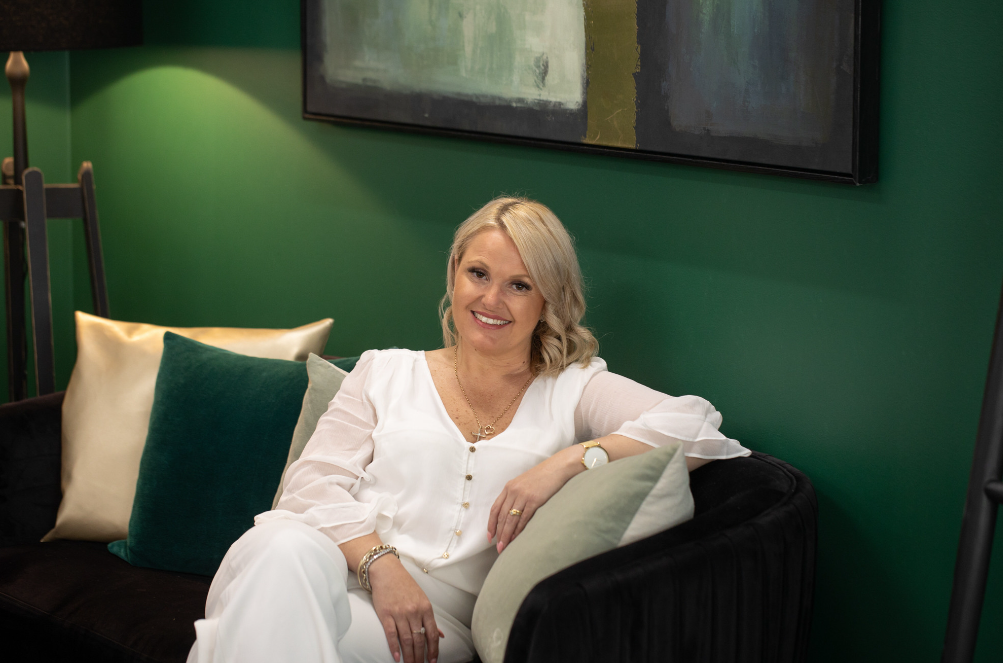Kellie Richardson: Do House Numbers Really Change Your Luck or Impact Your Sale Price?
26 June 2025
Can a house number really affect your happiness, financial success or ability to sell a home? According to interior designer and Feng Shui expert Kellie Richardson, founder of Kurved by Design and creator of Australia’s first online design academy, the answer is yes – and increasingly, property buyers agree.
Your house number can shape the energy of your space and how others feel about it too,” Richardson said.
“It’s not just superstition. It’s about emotional connection, cultural symbolism and subtle but powerful influences that are playing out in the property market every day.”
The meaning behind house numbers
In Feng Shui, numbers are more than just digits on your letterbox. Each carries a symbolic meaning and vibrational frequency that can influence how you experience life in your home. For instance, the number 1 reflects independence and new beginnings, while 2 resonates with harmony and relationships. The number 3 brings creativity and joy, while 4 – considered unlucky in many Asian cultures, carries associations with misfortune due to its phonetic similarity to the word for death.
Number 5 signals movement and change, 6 is tied to family and responsibility and 7 evokes contemplation and spiritual development. The number 8 is widely regarded as the luckiest of all, symbolising prosperity and wealth. Number 9 speaks to wisdom, completion and purpose. When these numbers combine, their energy creates an emotional tone that can subtly affect everything from how you sleep to how visitors perceive your space.
Living in alignment with your number
Richardson has worked with many homeowners who unknowingly struggled with low mood, financial stagnation or tension in the home, only to discover their house number’s energy was in conflict with their personal or family goals. Once they understood the number’s influence and applied small Feng Shui corrections, often starting at the entrance, they noticed real and lasting improvements.
“The goal is not to fear a number but to work with its meaning. If the energy feels off, it can often be rebalanced using simple design, symbolism and intention,” Richardson said.
Why buyers are paying attention
With Australia’s property market increasingly shaped by multicultural influences, Richardson said buyers, particularly those from Chinese, Vietnamese and Indian backgrounds are factoring Feng Shui into their decisions, even if quietly.
“The energy of a number can make or break a buyer’s connection to a home. Numbers like 8 and 6 tend to attract more attention and positive sentiment, while 4 or 13 may cause hesitation, even when everything else about the property is appealing,” Richardson said.
Richardson said it’s not uncommon for real estate agents to report lower turnout or softer offers on properties with numerals considered unlucky. In contrast, homes with fortunate numbers may receive premium interest. Even for buyers unfamiliar with Feng Shui, the feeling a house gives them upon arrival often comes down to elements as simple as light, layout – and yes, the number on the door.
What to do if your number feels unlucky
Changing your house number through council is sometimes possible, but Richardson said in most cases, it’s not necessary. Instead, homeowners can shift the energy using strategic design.
“Styling your front entry with inviting lighting, healthy plants or symbols of abundance such as flowing water features or meaningful artwork can transform the way your home is received,” Richardson said.
“Another option is to name your home. If you’re living at number 4, calling it something like ‘Sunview’ or ‘The Retreat’ adds personality and softens the emphasis on the number itself. This can also be a point of emotional appeal for buyers.”
Does it affect your ability to sell?
Many people believe that a house number can affect your ability to sell. Richardson believes a house that feels energetically aligned not only attracts the right buyer, but also allows for a smoother, more emotionally compelling sale.
“If the first impression is uneasy, which can start at the street, the entire sales process can stall. But if the number supports flow, positivity and confidence, it sets the tone for success from the moment someone walks through the gate,” Richardson added.
More than just a number
In today’s property climate, Kellie Richardson said it’s the small, emotional details that increasingly define value. A house number may seem insignificant, but it can influence how a home feels, how well it functions for the people living in it and how desirable it becomes on the market.
“Design isn’t just about what you see, it’s about what you sense. When something feels right, buyers move quickly and sometimes, the smallest details, like a number, can have the biggest impact,” Richardson emphasised.






